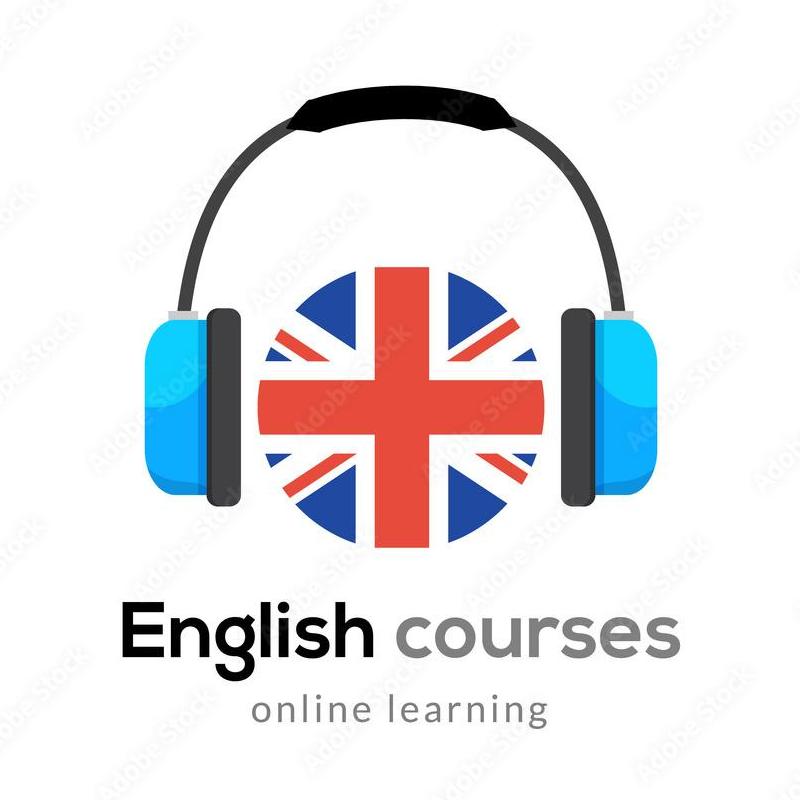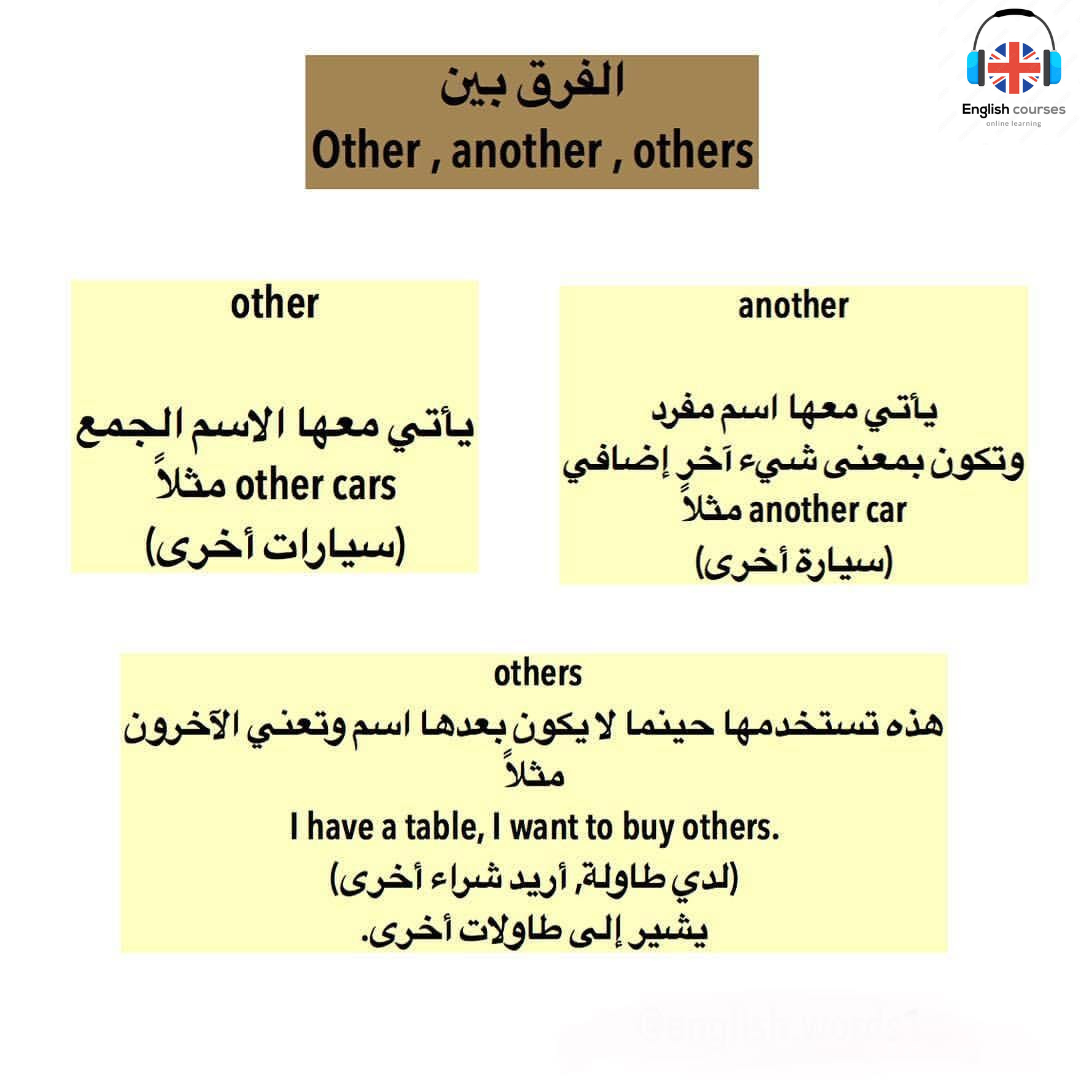Learn English full course a-z
-
5979 أشخاص أعجبو بهذا
-
14 المنشورات
-
2 الصور
-
0 الفيديوهات
-
2 تقييم 5.0
-
مدارس وهيئات تعليمية
التحديثات الأخيرة
-
type of sentences and functions
there is 4 type of sentences .
- simple sentences .
- compound sentences .
- complex sentences .
- compound-complex sentences .
PDF : https://www.sjsu.edu/writingcenter/docs/handouts/Sentence%20Types%20and%20Functions.pdf
type of sentences and functions there is 4 type of sentences . - simple sentences . - compound sentences . - complex sentences . - compound-complex sentences . PDF : https://www.sjsu.edu/writingcenter/docs/handouts/Sentence%20Types%20and%20Functions.pdf0 التعليقات 0 المشاركات 1الف مشاهدة 0 تقييم1 الرجاء تسجيل الدخول , للأعجاب والمشاركة والتعليق على هذا!
الرجاء تسجيل الدخول , للأعجاب والمشاركة والتعليق على هذا! -
Story : The Little Prince PDF
The Little Prince (French: Le Petit Prince, pronounced is a novella written and illustrated by French writer and military pilot Antoine de Saint-Exupéry. It was first published in English and French in the United States by Reynal & Hitchcock in April 1943 and was published posthumously in France following liberation; Saint-Exupéry's works had been banned by the Vichy Regime. The story follows a young prince who visits various planets, including Earth, and addresses themes of loneliness, friendship, love, and loss. Despite its style as a children's book, The Little Prince makes observations about life, adults, and human nature.
Story : The Little Prince PDF The Little Prince (French: Le Petit Prince, pronounced is a novella written and illustrated by French writer and military pilot Antoine de Saint-Exupéry. It was first published in English and French in the United States by Reynal & Hitchcock in April 1943 and was published posthumously in France following liberation; Saint-Exupéry's works had been banned by the Vichy Regime. The story follows a young prince who visits various planets, including Earth, and addresses themes of loneliness, friendship, love, and loss. Despite its style as a children's book, The Little Prince makes observations about life, adults, and human nature.نوع الملف: pdf1 التعليقات 0 المشاركات 2الف مشاهدة 0 تقييم1
-
Than vs Then
Than (من): يستخدم للمقارنة.
مثال: She is taller than her brother.
هي اطول من اخوها .
Then (ثم): يستخدم للتحدث عن الوقت أو التسلسل الزمني.
مثال: We went to the store, then we went home
ذهبنا للسوق ثم الى المنزلThan vs Then Than (من): يستخدم للمقارنة. مثال: She is taller than her brother. هي اطول من اخوها . Then (ثم): يستخدم للتحدث عن الوقت أو التسلسل الزمني. مثال: We went to the store, then we went home ذهبنا للسوق ثم الى المنزل1 التعليقات 0 المشاركات 2الف مشاهدة 0 تقييم1
-
الأزمنة التامة perfect
المضارع التام (Present Perfect):
الاستخدام: للتحدث عن أفعال حدثت في الماضي وتأثيرها مستمر حتى الآن.
التكوين: "has/have" + الفعل بصيغة التصريف الثالث (past participle).
مثال: She has read three books this month.
الماضي التام (Past Perfect):
الاستخدام: للتحدث عن أفعال حدثت قبل نقطة زمنية محددة في الماضي.
التكوين: "had" + الفعل بصيغة التصريف الثالث.
مثال: They had finished their game before it started to rain.
المستقبل التام (Future Perfect):
الاستخدام: للتحدث عن أفعال ستكتمل قبل نقطة زمنية محددة في المستقبل.
التكوين: "will have" + الفعل بصيغة التصريف الثالث.
مثال: He will have visited his grandparents by the end of next week.الأزمنة التامة perfect المضارع التام (Present Perfect): الاستخدام: للتحدث عن أفعال حدثت في الماضي وتأثيرها مستمر حتى الآن. التكوين: "has/have" + الفعل بصيغة التصريف الثالث (past participle). مثال: She has read three books this month. الماضي التام (Past Perfect): الاستخدام: للتحدث عن أفعال حدثت قبل نقطة زمنية محددة في الماضي. التكوين: "had" + الفعل بصيغة التصريف الثالث. مثال: They had finished their game before it started to rain. المستقبل التام (Future Perfect): الاستخدام: للتحدث عن أفعال ستكتمل قبل نقطة زمنية محددة في المستقبل. التكوين: "will have" + الفعل بصيغة التصريف الثالث. مثال: He will have visited his grandparents by the end of next week.1 التعليقات 0 المشاركات 2الف مشاهدة 0 تقييم1
-
الأزمنة المستمرة Continuous
المضارع المستمر (Present Continuous):
الاستخدام: للتحدث عن أفعال تحدث الآن أو حول هذه الفترة.
التكوين: "am/is/are" + الفعل بإضافة "ing".
مثال: She is reading a book right now.
الماضي المستمر (Past Continuous):
الاستخدام: للتحدث عن أفعال كانت تحدث في نقطة زمنية محددة في الماضي.
التكوين: "was/were" + الفعل بإضافة "ing".
مثال: They were playing football when it started to rain.
المستقبل المستمر (Future Continuous):
الاستخدام: للتحدث عن أفعال ستحدث وتستمر في نقطة زمنية محددة في المستقبل.
التكوين: "will be" + الفعل بإضافة "ing".
مثال: He will be visiting his grandparents at this time next week.الأزمنة المستمرة Continuous المضارع المستمر (Present Continuous): الاستخدام: للتحدث عن أفعال تحدث الآن أو حول هذه الفترة. التكوين: "am/is/are" + الفعل بإضافة "ing". مثال: She is reading a book right now. الماضي المستمر (Past Continuous): الاستخدام: للتحدث عن أفعال كانت تحدث في نقطة زمنية محددة في الماضي. التكوين: "was/were" + الفعل بإضافة "ing". مثال: They were playing football when it started to rain. المستقبل المستمر (Future Continuous): الاستخدام: للتحدث عن أفعال ستحدث وتستمر في نقطة زمنية محددة في المستقبل. التكوين: "will be" + الفعل بإضافة "ing". مثال: He will be visiting his grandparents at this time next week.0 التعليقات 0 المشاركات 2الف مشاهدة 0 تقييم 2
2
-
الأزمنة البسيطة simple
المضارع البسيط (Present Simple):
الاستخدام: للتحدث عن العادات أو الحقائق العامة.
التكوين: الفعل الأساسي (يضاف له "s" مع الضمائر he/she/it).
مثال: She reads books every day.
الماضي البسيط (Past Simple):
الاستخدام: للتحدث عن أحداث حدثت وانتهت في الماضي.
التكوين: الفعل الأساسي بإضافة "-ed" (للأفعال المنتظمة).
مثال: They played football yesterday.
المستقبل البسيط (Future Simple):
الاستخدام: للتحدث عن أحداث ستحدث في المستقبل.
التكوين: "will" + الفعل الأساسي.
مثال: He will visit his grandparents next week.الأزمنة البسيطة simple المضارع البسيط (Present Simple): الاستخدام: للتحدث عن العادات أو الحقائق العامة. التكوين: الفعل الأساسي (يضاف له "s" مع الضمائر he/she/it). مثال: She reads books every day. الماضي البسيط (Past Simple): الاستخدام: للتحدث عن أحداث حدثت وانتهت في الماضي. التكوين: الفعل الأساسي بإضافة "-ed" (للأفعال المنتظمة). مثال: They played football yesterday. المستقبل البسيط (Future Simple): الاستخدام: للتحدث عن أحداث ستحدث في المستقبل. التكوين: "will" + الفعل الأساسي. مثال: He will visit his grandparents next week.0 التعليقات 0 المشاركات 2الف مشاهدة 0 تقييم1
-
#BAC_Lessons
Prefix . Root . Suffix
Prefix:
A set of letters added to the beginning of a word to modify its meaning.
Root:
The main part of a word that carries the core meaning.
Suffix:
A set of letters added to the end of a word to change its form or meaning.
some common English prefixes:
ad-anti-de-dis-en-em-ex-hyper-il-im-in-ir-inter-mis-pre-semi-super-un-under-non-co- con-
some common English suffixes:
-able-ible--ance-ence-al-ed-en-er -or-est-ful-ing-ion-tion-ation-ition-ity -ty-less-ness-s-es-ly-ive-ative-itive-ion-tion-ation-ition#BAC_Lessons Prefix . Root . Suffix Prefix: A set of letters added to the beginning of a word to modify its meaning. Root: The main part of a word that carries the core meaning. Suffix: A set of letters added to the end of a word to change its form or meaning. some common English prefixes: ad-anti-de-dis-en-em-ex-hyper-il-im-in-ir-inter-mis-pre-semi-super-un-under-non-co- con- some common English suffixes: -able-ible--ance-ence-al-ed-en-er -or-est-ful-ing-ion-tion-ation-ition-ity -ty-less-ness-s-es-ly-ive-ative-itive-ion-tion-ation-ition0 التعليقات 0 المشاركات 2الف مشاهدة 0 تقييم1
-
The Enchanted Forest
In the heart of a dense forest, there lay a hidden glade where magic was said to dwell. Every full moon, whispers of a shimmering pond that granted wishes spread among the villagers. Sarah, a curious young girl, often heard these tales from her grandmother.
One crisp autumn evening, under the light of the full moon, Sarah ventured into the forest. Armed with only a lantern and her grandmother's stories, she followed a narrow path lined with ancient trees. The air was thick with anticipation as she approached the glade.
As Sarah reached the clearing, she gasped in awe. There before her was a pond, its surface reflecting the moonlight like a thousand tiny stars. Hesitant but hopeful, Sarah dipped her hand into the cool water and whispered her deepest wish.
Suddenly, the forest around her shimmered with an ethereal glow. Leaves rustled softly, and a gentle breeze whispered through the branches. Sarah felt a sense of peace wash over her, as if the forest itself was embracing her dreams.
With a heart full of gratitude, Sarah retraced her steps home. She knew that even if her wish didn't come true right away, the magic of that night would stay with her forever.The Enchanted Forest In the heart of a dense forest, there lay a hidden glade where magic was said to dwell. Every full moon, whispers of a shimmering pond that granted wishes spread among the villagers. Sarah, a curious young girl, often heard these tales from her grandmother. One crisp autumn evening, under the light of the full moon, Sarah ventured into the forest. Armed with only a lantern and her grandmother's stories, she followed a narrow path lined with ancient trees. The air was thick with anticipation as she approached the glade. As Sarah reached the clearing, she gasped in awe. There before her was a pond, its surface reflecting the moonlight like a thousand tiny stars. Hesitant but hopeful, Sarah dipped her hand into the cool water and whispered her deepest wish. Suddenly, the forest around her shimmered with an ethereal glow. Leaves rustled softly, and a gentle breeze whispered through the branches. Sarah felt a sense of peace wash over her, as if the forest itself was embracing her dreams. With a heart full of gratitude, Sarah retraced her steps home. She knew that even if her wish didn't come true right away, the magic of that night would stay with her forever.0 التعليقات 0 المشاركات 1الف مشاهدة 0 تقييم1
-
الفرق مابين other / another/others :
الفرق مابين other / another/others :1 التعليقات 0 المشاركات 1الف مشاهدة 0 تقييم1
-
#BAC_Lessons
تجدون في هذا الملخص جميع الكلمات ومفردات الوحدات التي يجب على طالب البكالوريا شعب العلمية ان يحفضها لتسهيل عملية فهم النص ...
كما نعلم ان الشعب العلمية لديهم 3 وحدات :
1 - Ethics in business .
2 - Safety first .
3 - Astronomy .
https://docs.google.com/file/d/1GGxm6CPcyXJocNt3mFNRi4jvqMtluFXS/view?pli=1
#BAC_Lessons تجدون في هذا الملخص جميع الكلمات ومفردات الوحدات التي يجب على طالب البكالوريا شعب العلمية ان يحفضها لتسهيل عملية فهم النص ... كما نعلم ان الشعب العلمية لديهم 3 وحدات : 1 - Ethics in business . 2 - Safety first . 3 - Astronomy . https://docs.google.com/file/d/1GGxm6CPcyXJocNt3mFNRi4jvqMtluFXS/view?pli=11 التعليقات 1 المشاركات 4الف مشاهدة 0 تقييم1
المزيد من المنشورات





